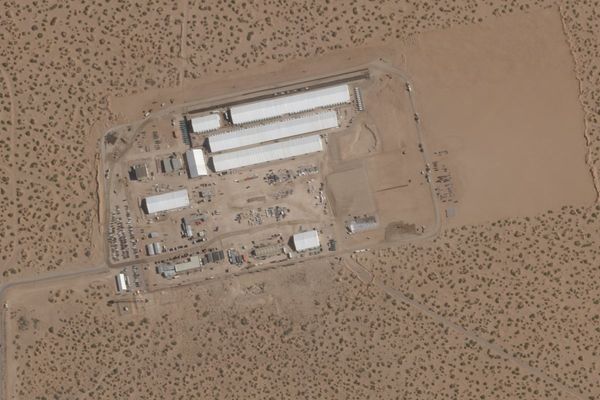
A woman who was illegally strip-searched by New South Wales police has been awarded $93,000 in a landmark class action that lawyers believe will “render thousands of strip-searches” at music festivals unlawful.
Justice Dina Yehia handed down her findings in the NSW supreme court on Tuesday in a class action brought by Slater and Gordon Lawyers and the Redfern Legal Centre against the state of NSW over the allegedly unlawful strip-searches conducted by police at music festivals between 2018 and 2022.
Yehia said there had been a “flagrant” disregard for the rights of the lead plaintiff, Raya Meredith, and also that the instructions by police to lift her breasts and remove her tampon during the search were “egregious”.
Meredith was awarded $93,0000 in damages, which included $43,000 in compensation and $50,000 in aggravated damages. She was also entitled to exemplary damages, but this figure had not yet been determined.
Meredith was at Splendour in the Grass when a drug dog sniffed in her direction but then walked on in 2018. The 27-year-old, who was postpartum at the time, was then taken into a makeshift tarpaulin tent, where a female police officer asked her to take all her clothes off, bend over and bare her bottom, drop her breasts and remove her tampon. At one point, a male officer walked in unannounced.
The search found no drugs and nothing else illegal.
“It was a horrible thing to go through,” Meredith had said in emotional testimony on the first day of the class action in May.
But so too, Meredith told the court, was the “gaslighting” she endured for years by the police force who denied her version of events, leaving her feeling “violated, yet again”.
Sign up: AU Breaking News email
Days before the class action hearing began, police admitted in court documents that its strip-search of Meredith was unlawful and unjustified, and ignored laws protecting her rights.
The state then withdrew the 22 witnesses, mostly police officers, who were set to contest the lead plaintiff’s version of events in the hearing which took place in May.
Three thousand people have signed on to the class action, but the affected cohort could be twice as large.
It is yet to be determined what the lead plaintiff’s win will mean for the rest of the group members, but lawyers for group members said the state could be forced to pay “potentially millions”.
“The egregious experience of the plaintiff was not an outlier,” William Zerno, a senior associate at Slater and Gordon Lawyers, told reporters outside court.
“[It] was experienced by thousands like it. Minors were strip-searched. Some people were subjected to cavity searches, and people were strip-searched in public view and were asked by NSW police, in some instances, to remove tampons,” Zerno said.
Under NSW laws which govern police powers, an officer can only conduct a strip-search if it is deemed necessary, and there are serious or urgent circumstances that require it.
In her judgment, Yehia highlighted that there were no records in the police database that identified how these requirements were met for all 143 strip-searches officers carried out the day Meredith was also searched.
She said that “it’s not enough” for police to merely rely on their general experience that patrons at music festivals sometimes conceal drugs on their body.
Yehia also pointed out that an indication from a drug dog does not meet the threshold either, with this method only leading to drugs being found in 30% of cases.
She also deemed that “prior use or possession of cannabis” on its own cannot meet the strip-search requirements of serious or urgent because there was no evidence that marijuana causes overdose or death.
Seventy-four of the people who were searched at the 2018 Splendour in the Grass had admitted to prior use of marijuana before entering the festival.
Yehia said the powers that govern strip-searches do not provide police an express power to direct or force and individual to move their body parts to facilitate a search. She also pointed out that cavity searches were prohibited.
“[The instruction for Meredith to] lift her breasts, and the direction to remove her tampon were beyond the police’s powers,” Yehia said.
Zerno said it was the largest class action against any police force in history.
“The evidence that was led in this proceeding that the NSW police undertook searches on industrial level at festivals, and with little or no regard to the legislative requirements or safeguards which are intended to check these powers,” he said. “This has significant and far-reaching indications, and we believe that this will render thousands of strip-searches in this setting unlawful.”
Samantha Lee, a senior solicitor at Redfern Legal Centre, said: “This has been powered by the courage of young people and children. It is their courage that has brought this case before the court.”







